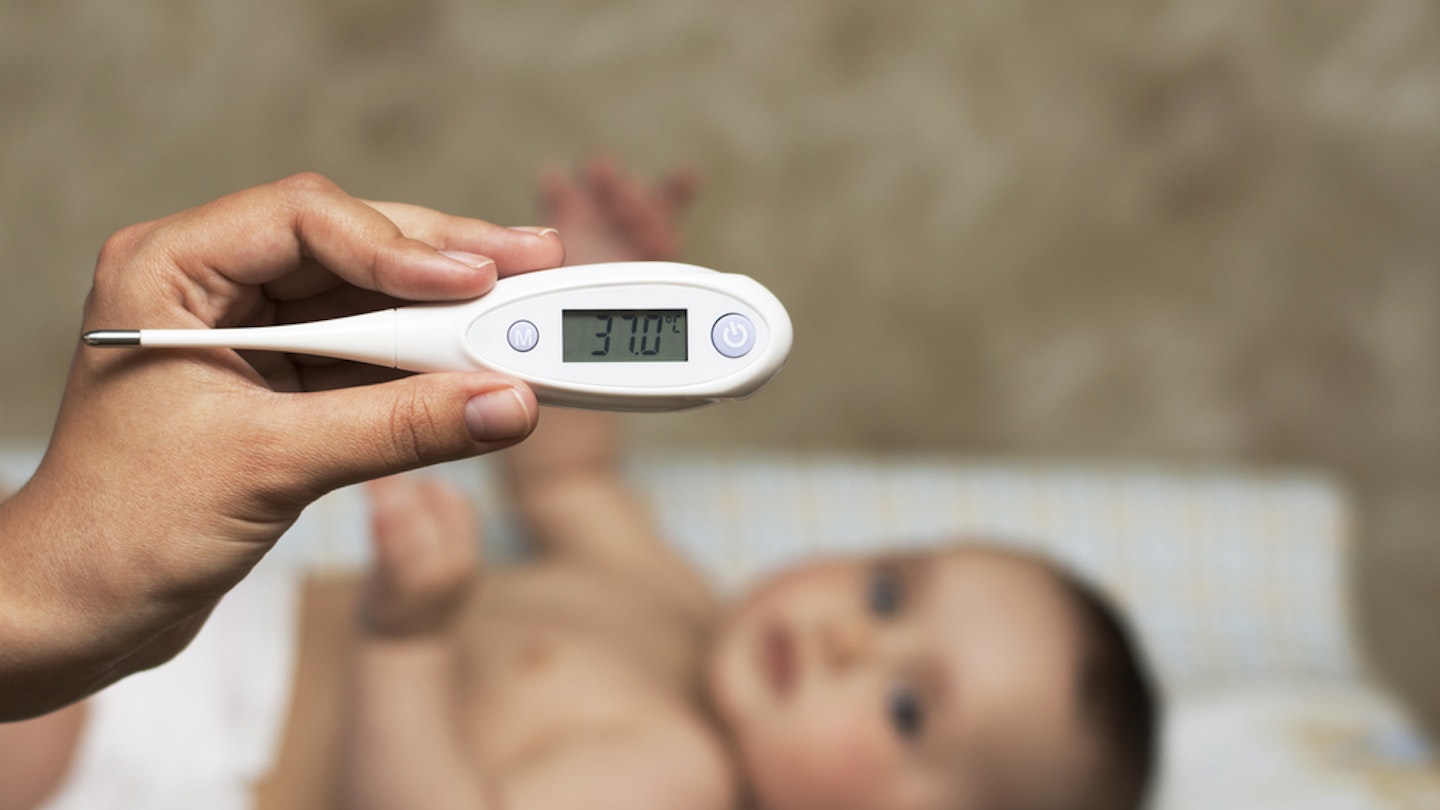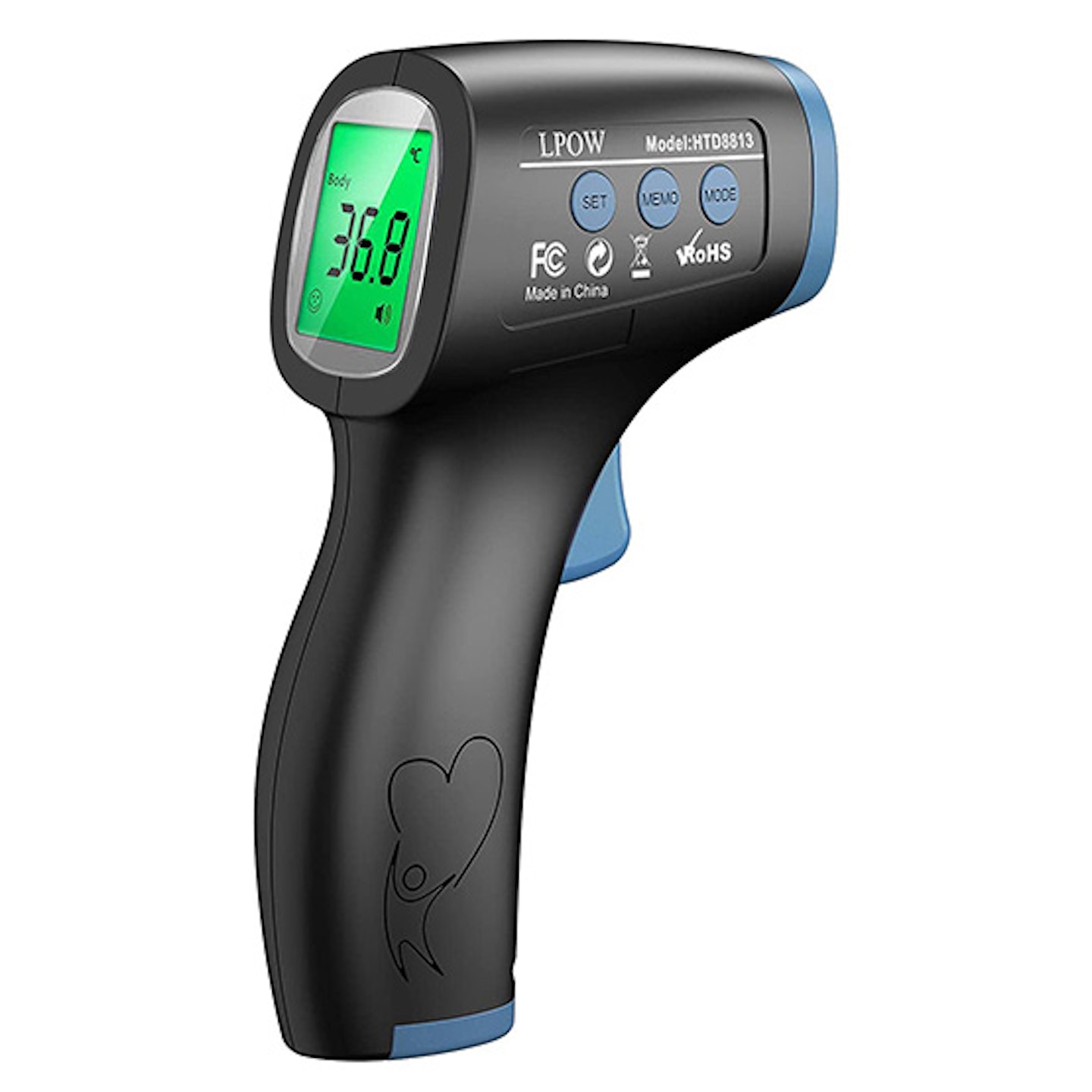Every family medicine cabinet should have a baby thermometer as it's necessary when you think your baby or toddler might have a fever. When it comes to baby thermometers, you may have a thermometer for their bath water, but you'll need a specific baby thermometer for when they're poorly.
These devices are easy to use and don't cost the earth, plus they'll give you peace of mind. They will allow you to check all of your family members' temperatures, so you can keep track of everyone's wellbeing. However, it's often a device you may not think about buying until your child is actually unwell.
We all know trying to hold a baby still for six minutes to get an accurate reading is near impossible. This is why a baby thermometer is a must-have, as they can deliver a temperature reading in just a few seconds. In addition to body thermometers, bath and baby room thermometers are also necessary to make sure that your baby's surroundings are just right.
Our favourites:
• Best for multi-purpose: Boots Non-Contact Baby Thermometer
• Best for clear display: Tommee Tippee No Touch Forehead Thermometer
• Best for quick results: LPOW Thermometer
• Best for being compact: Braun Digital Stick Thermometer
To help you take your baby's temperature, whether that's by forehead or ear, and make sure it's just right (between 36 and 37 degrees), we've rounded up some of the best baby thermometers on the market. We have taken price, features, and design into consideration when selecting our favourites.
The best baby thermometers 2023
Here are some of the best baby thermometers available to buy right now in the UK.
Best for multi-purpose
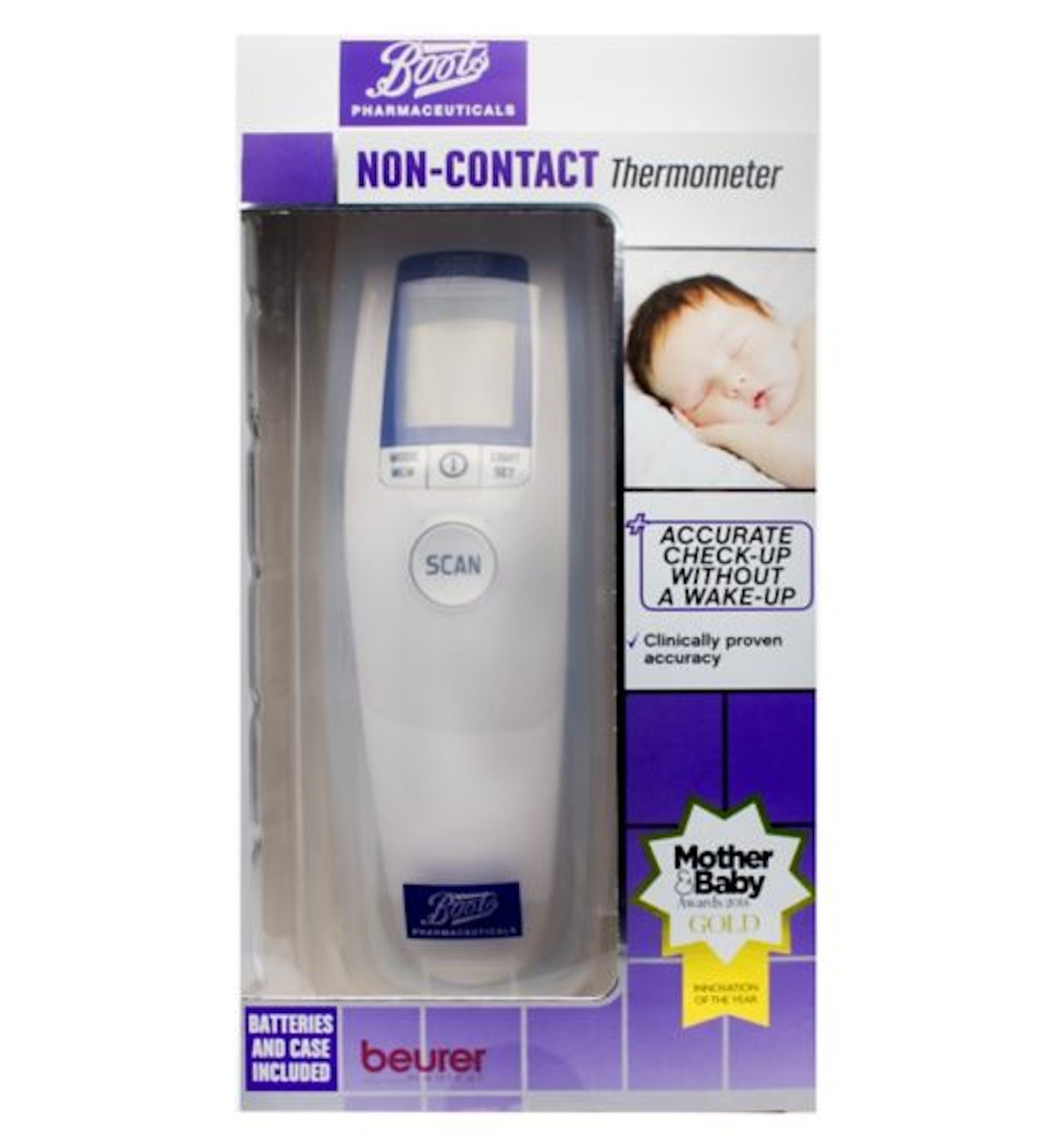
www.boots.com
Description
This clever Non-Contact Baby Thermometer from Boots has clinically proven accuracy and is
Pros
- Lightweight and travel friendly
- Comes with a storage case
- Built-in memory
Cons
- Some found it to be inconsistent
Best for easy use
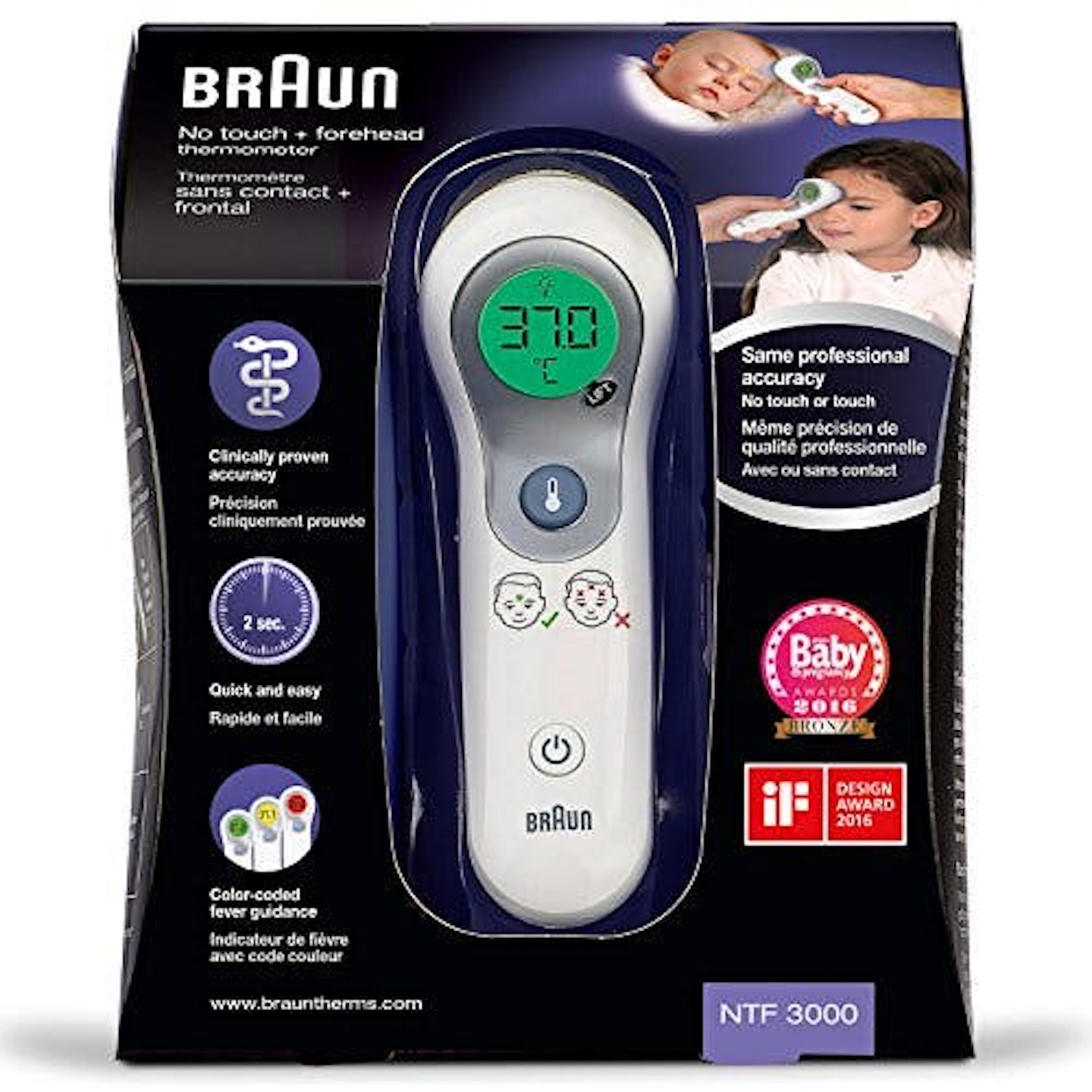
www.boots.com
Description
Another non-contact thermometer that we really like, the Braun No Touch + forehead thermometer,
Pros
- No touch mode
- Fast reading
- Backlit display
Cons
- Resetting the device takes a while
Best for a clear display
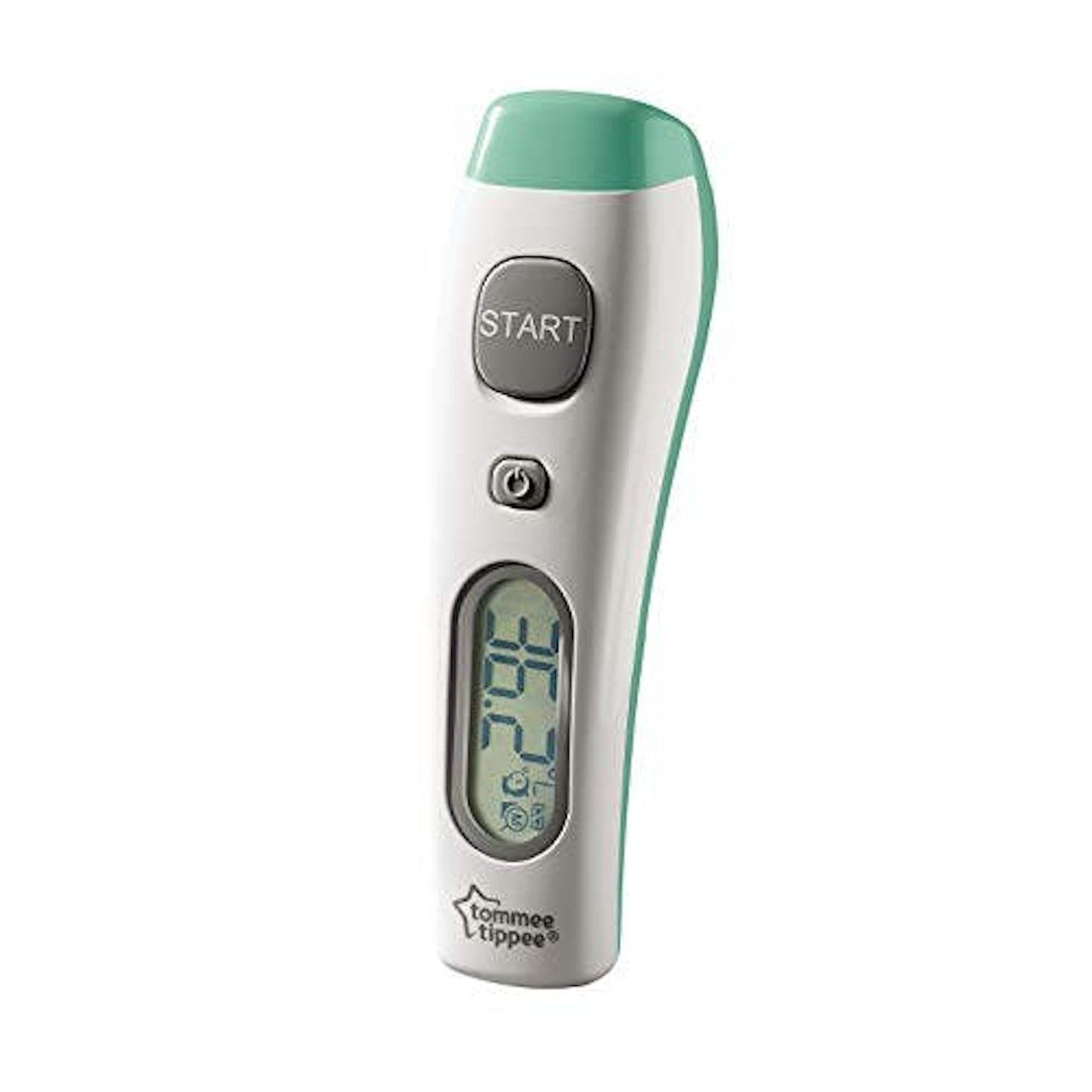
Description
This clever Tommee Tippee No Touch Forehead thermometer is perfect for reading the temperature
Pros
- Non-intrusive
- Fever Indicator
- Stores last 25 readings in memory
Cons
- Doesn't come with a case
Best for colour-coded display
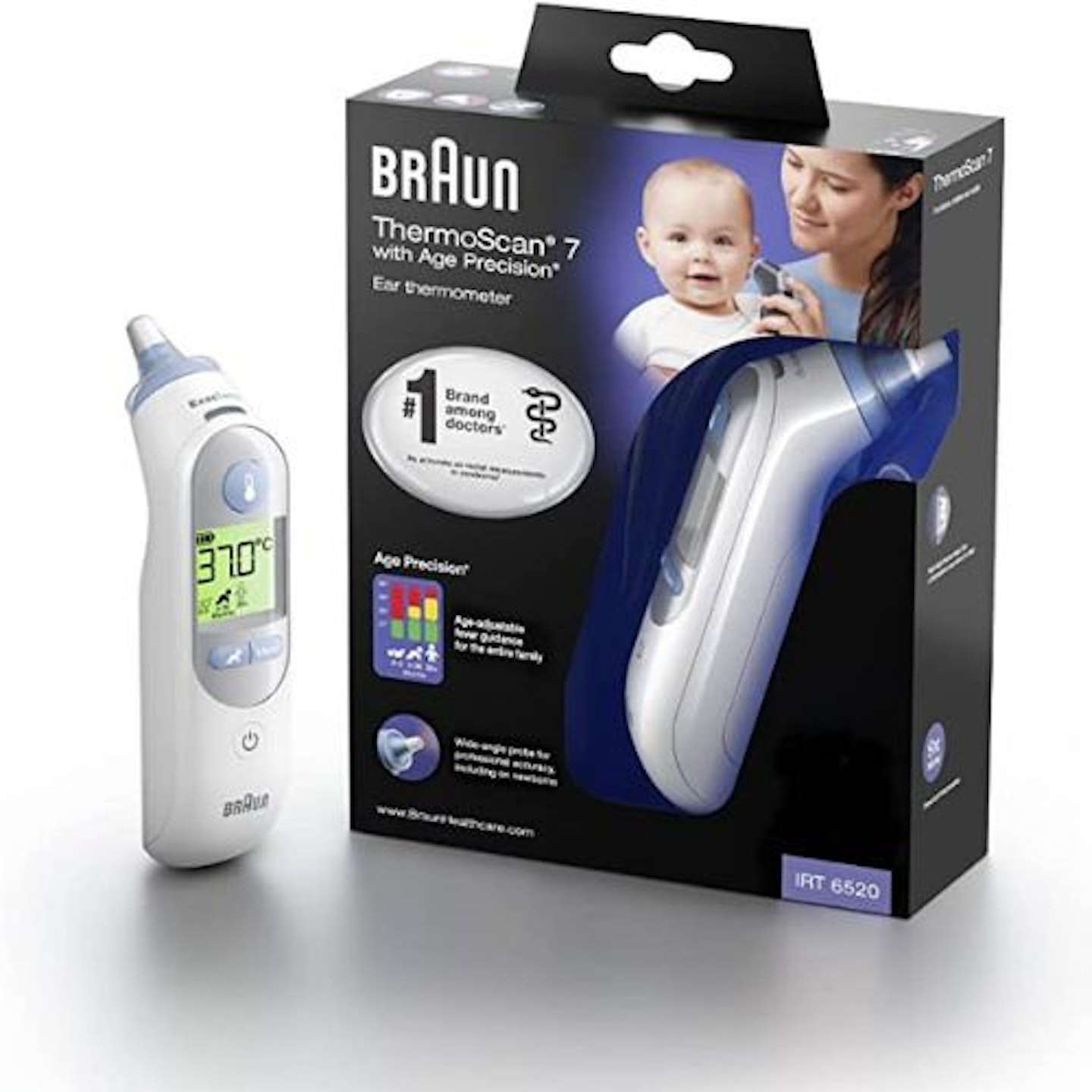
Description
This ear thermometer measures a baby's temperature through the ear with professional accuracy. Its
Pros
- Age-adjustable fever guidance
- Pre-warmed tip
- Hygenic
Cons
- Difficult to use at night
Best for being quiet
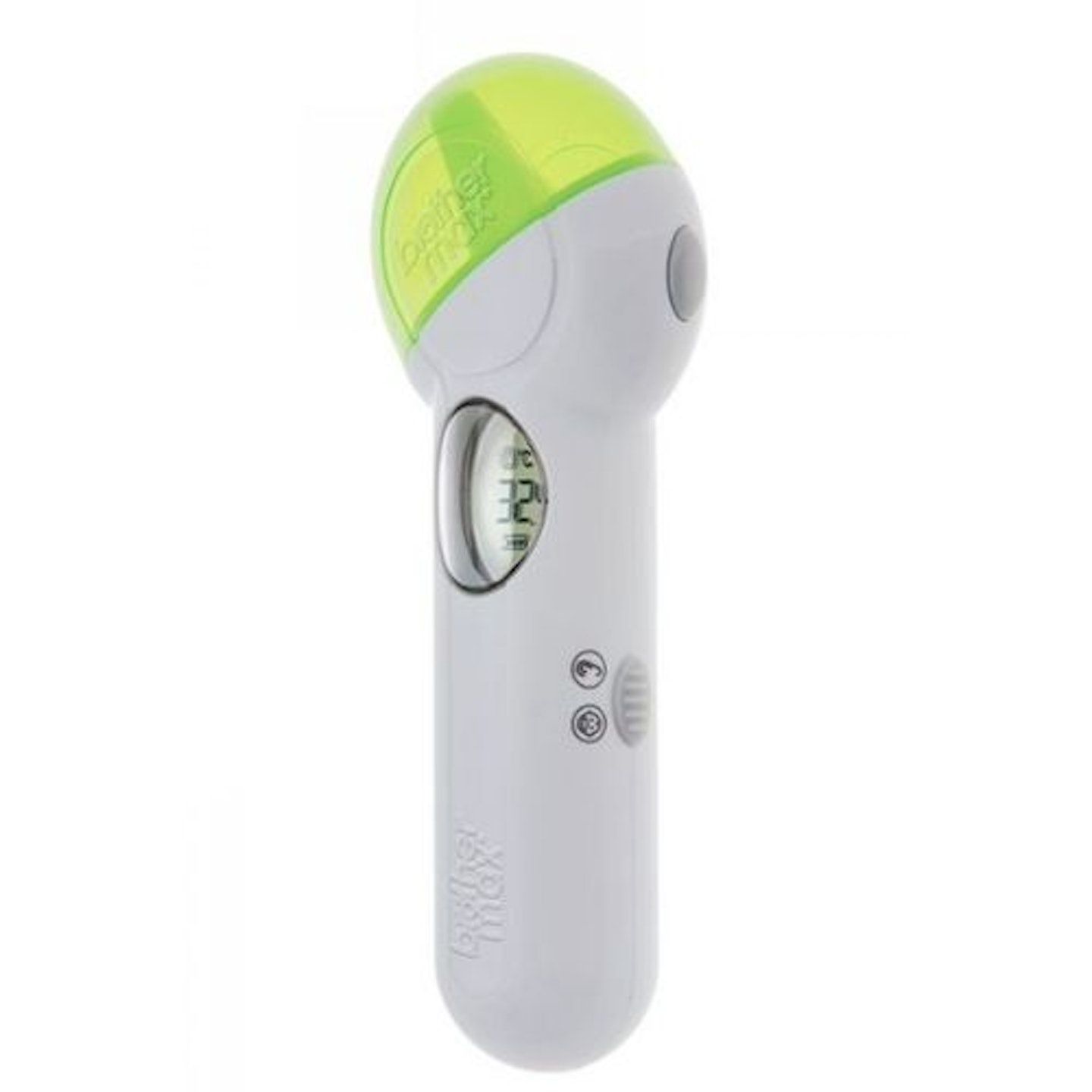
www.vivomed.com
Description
Silent and easy to use with the option to use zero contact, the Brother Max Infrared Digital
Pros
- No need for probe covers
- One-touch readings
- Silent
Cons
- No backlight
Best for quick results
Description
Straight forward to use, this LPOW thermometer provides can be detected within a distance of 1cm
Pros
- Non-contact thermometer
- Large screen
- Result in one second
Cons
- Not as solid build as some others
Best for being compact
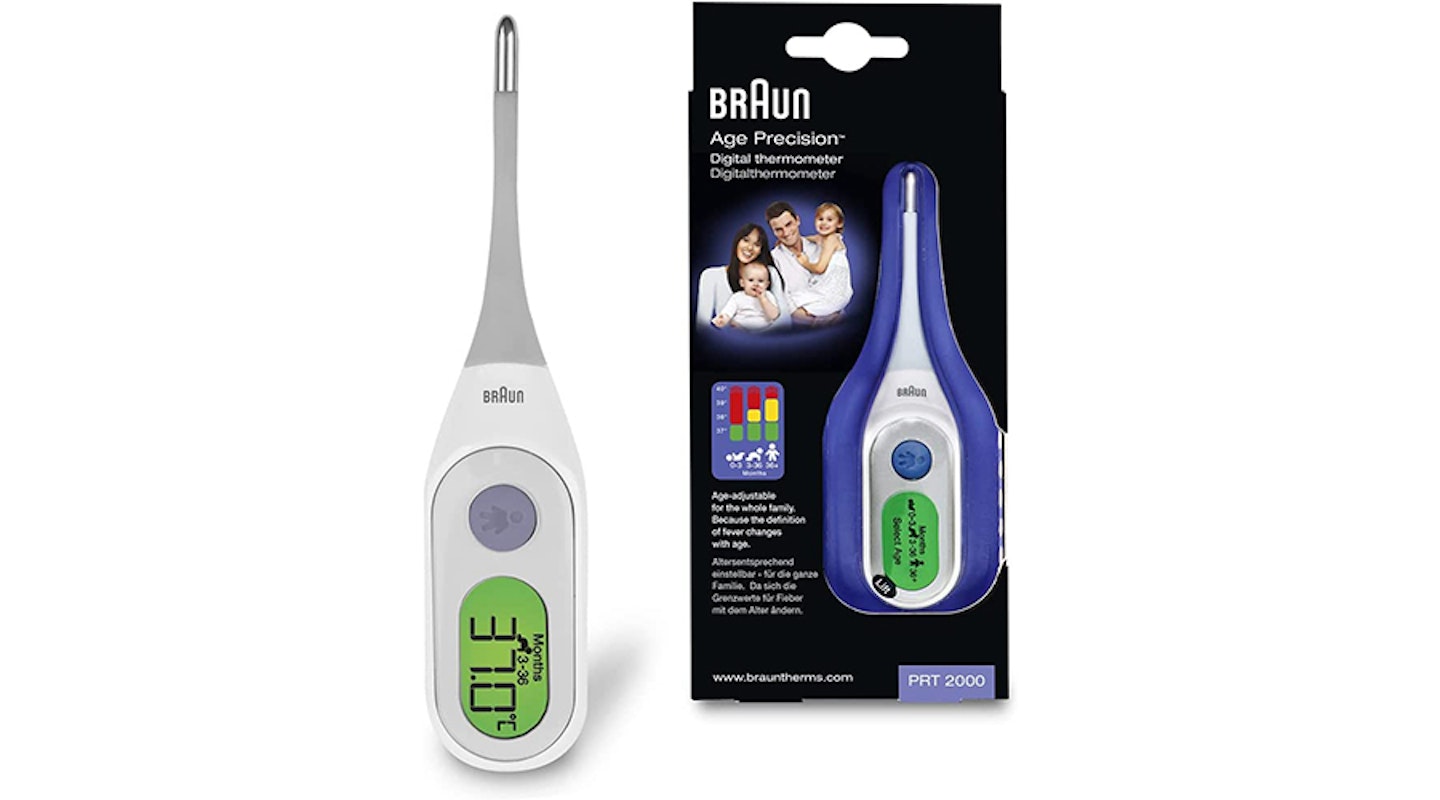
Description
Small enough to fit into your child's changing bag or your handbag, this Braun Digital
Pros
- Simple to use
- Age-adjustable fever guidance
Cons
- Takes longer to give a reading than other thermometers
How to clean a baby thermometer
Wipe the tip of your thermometer with alcohol-based wipes or some disinfectant. Alternatively, you could dip some cotton wool in some rubbing alcohol and wipe over it. You can do the same with an ear thermometer, or you can change the earpiece. Make sure the thermometer has fully dried before using again.
Choosing the best baby thermometer for you
Obviously, when it comes to looking after your child when they're possibly poorly, you'll only want the best of the best. When selecting your baby thermometer, you can take these factors into consideration.
Accuracy - Of course, the more accurate, the better; so you can make informed decisions for your child.
Type - Not all baby thermometers are designed the same, so choose a type that will be the easiest for you to use.
Ease of use - When you have a poorly little one, you'll want to take their temperature in the easiest way possible.
Easy to read - Make sure the thermometer screen and readings are simple to read and understand.
Speed of reading - Quick readings will give you that peace of mind in a timely manner; which is ideal.
What Type of Baby Thermometers Are There?
There are so many different types of baby thermometers on the market that cost anywhere from £10-£50; here's a run-down of the different options available:
In-ear thermometers: You'll notice most doctors use a digital in-ear thermometer to take babies' temperatures —this is because it is quick and painless while giving an accurate body temperature reading.
Non-contact thermometers (forehead): These work by taking an infrared reading from your baby's forehead, meaning you can check on their temperature with no physical contact. Don't confuse these with the cheaper strip forehead thermometers, which are very different and much less accurate. The NHS recommends avoiding using forehead strip-type thermometers.
Armpit thermometers: The NHS still recommends these when taking your baby's temperature —especially when they are a newborn.
Rectal thermometers: Although this is considered the most invasive way of checking temperature, it is thought to give the most accurate result.
Room thermometers: These can help you make sure that your baby's room is at the safest temperature for a baby. Experts suggest 16–20°C with a light blanket. Take a look at our pick of the best room thermometers here.
Bath thermometers: A baby's bath should be 37-38°C, and the only way to make sure you've got it right is with a baby bath thermometer.
When should I check a baby's temperature?
Of course, if your little one is appearing unwell or showing symptoms of a fever, it's always best to check their temperature. You may also want to measure their temperature if they're more fussy than usual or seem uncomfortable. They could be acting this way for a plethora reasons but it's best to check for the process of elimination.
If your baby is under 2 months old, we'd recommend checking their temperature every two to four hours when they have a fever. Babies older than that won't have to be checked as regularly but it's still a good idea to check it at least a couple of times in the day. Note the readings down for their doctor too.
What is a high temperature for babies and what should I do?
"Your child's body is working all the time to maintain the optimum core temperature. Which all their organs need to function," explains consultant paediatrician and neonatologist Dr Elia Maalouf.
"When we take a baby or child's temperature, or an adult's for that matter, we're really measuring the core temperature of their body rather than that of the surface of their skin," explains Elia. "In order for the body to function efficiently, that temperature must fluctuate within a normal range of 36.5 to 37.2 degrees.
"Infections are the most common reason your child will get a temperature," says Elia.
"When an infection invades his body, it mounts what's called an 'inflammatory response' against it. Blood circulation increases around the infected area, carrying the antibodies needed to fight it. This causes his temperature to rise, which also happily kills off some bacteria and viruses that can't take the heat."
So a higher-than-normal reading on the thermometer can actually be a positive sign. "It's an indication that your child's body is mounting an effective response to kill off the infection," explains Elia.
"However, if your child has a temperature of 39.5 or above, you should always take action to try to lower it," he says.
The NHS urges parents to seek urgent medical advice if their baby under three months old has a temperature of 38°C or is between three and six months old and has a temperature of 39°C.
About the expert
Dr Elia Maalouf is a consultant paediatrician and neonatologist at the Portland Hospital for Women and Children, the UK's largest private children's hospital. Dr Elia Maalouf specialises in the treatment of fevers.
Hannah James is a Parenting and Lifestyle Writer working across Mother&Baby, Yours and Grazia.
